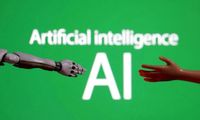In a groundbreaking move, Royal Unibrew, a leading Danish beverage company, has recently enhanced its marketing department by introducing five new employees powered by artificial intelligence. These AI creations, complete with names, faces, and email addresses, are designed to support human colleagues in various tasks, thereby fostering innovation and collaboration within the team.
Michaela Svanne, the service director at Royal Unibrew, explained the rationale behind this innovative approach, stating, "As humans, what we excel at is our creativity, empathy, and understanding of our customers." She emphasized that by integrating AI into their workflow, employees can focus more on creative tasks while AI handles routine and information-gathering responsibilities.
To facilitate this transition, Royal Unibrew partnered with Manifold AI, a Danish firm specializing in AI solutions. The newly appointed AI consultants are named Kondikai, who specializes in branding; Athena, a market analyst; Prometheus, who compiles sales data; Muller, a catering expert; and Aella, a sales representative. Initially, these AI entities were merely assistants without identities, but now they have developed distinct personas that allow them to engage daily with human staff.
Svanne noted a significant increase in interaction and usage of these AI assistants after they were given faces and names. She remarked, "When we put a picture on the AI agent, usage and interaction quadrupled." This increase in engagement highlights the importance of humanizing technology to enhance productivity and team dynamics.
Jan Damsgaard, a professor specializing in digital transformation at Copenhagen Business School, commented on the implications of AI in the workplace, stating that AI employees can be designed to create real personalities. He pointed out that these virtual agents are tailored to address specific challenges, making them invaluable assets in the workplace.
Within Royal Unibrew, Karen Jurgensen leads the Insights team responsible for data collection and analysis. She works closely with Athena, whom she describes as her "work partner." On a recent spring day, Jurgensen focused on the non-alcoholic beer market, engaging in discussions with Athena via the messaging app Teams. This collaboration allowed her to retrieve previously generated reports and gain a comprehensive overview of the market.
Reflecting on the changes brought about by AI, Jurgensen noted, "Previously, there were many emails, and we had to search for old reports and make numerous connections ourselves. Now, we've definitely moved towards greater flexibility and speed." She highlighted that AI assistants not only streamline processes but also ensure that all work-related knowledge is processed internally, enhancing efficiency.
Despite the advantages of AI integration, there are concerns regarding the potential erosion of critical thinking skills among employees. Liz Nubert Hordam, a department manager, cautioned that while AI can provide accurate data, it requires a human touch and creative thinking. "We must approach everything coming from Kondikai with a critical mindset because it is a machine," she said. "What it says is based on all the data we've provided, so while it may be accurate, it still needs a human perspective."
Svanne believes that the ongoing development of these AI colleagues represents not just a technological achievement but also a promise of a hybrid team that knows how to work together effectively. However, Damsgaard warns that every technology carries inherent risks. He poses critical questions about the dynamics of human-AI interactions: What happens when your closest colleague is an AI rather than a human? How should disputes be resolved between a human and an AI employee?
These are questions that remain largely unanswered, but Damsgaard hopes that ongoing research will shed light on these issues while also exploring the opportunities presented by new technologies.
As Royal Unibrew continues to innovate with AI, the company sets a precedent for how businesses can leverage technology to enhance productivity and foster a collaborative work environment. The integration of AI not only assists with routine tasks but also encourages a more dynamic and efficient workplace, paving the way for future developments in the field.
In conclusion, the introduction of AI employees at Royal Unibrew marks a significant step toward a future where human and artificial intelligence coexist and collaborate. As companies navigate this new landscape, the emphasis on maintaining critical thinking and human creativity will be essential in harnessing the full potential of AI.


